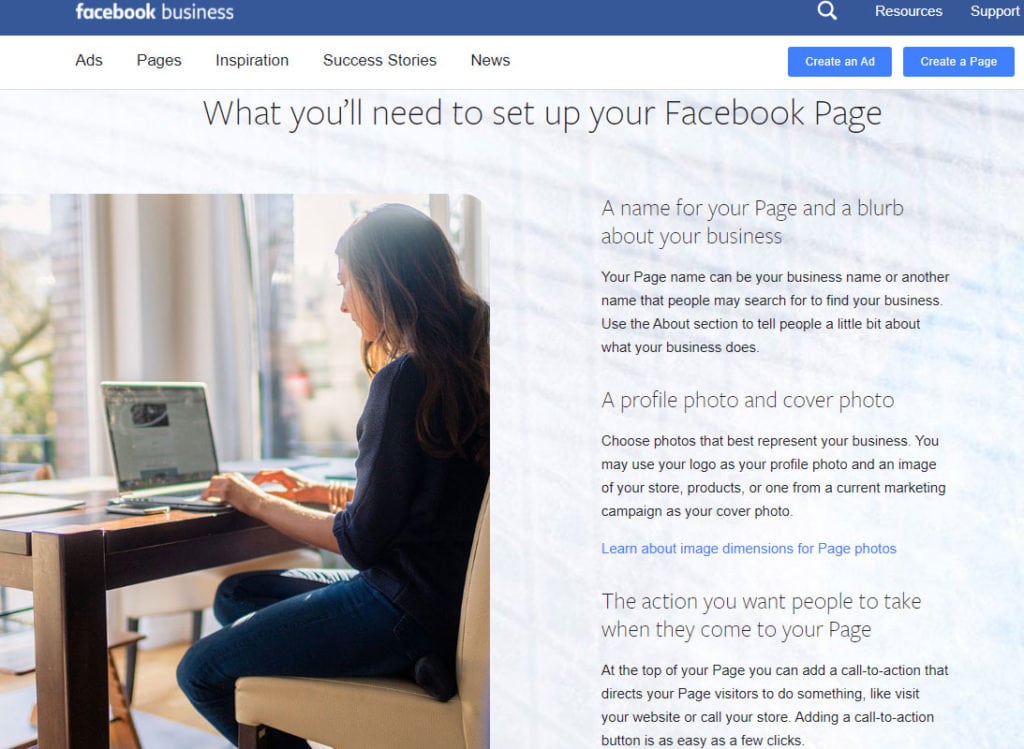It Isn’t Just About Conversions Anymore
The social media game is most often measured in terms of conversions, whether that translates to reposts, click-throughs, or direct purchasing. And of course, conversions shouldn’t be underestimated, especially since they are so easy to track.
However, social media platforms like Facebook also serve a myriad of other purposes that are extremely important to modern business but aren’t necessarily as easy to quantify. Facebook has established a trusted reputation that has remained largely intact over the years, even in the wake of the Cambridge Analytica scandal. In fact, the company has recently undergone several changes to the way it handles data to restore and preserve user trust, so get familiar with these changes before diving in.
Your potential customers likely still rely on Facebook for many reasons, and chief among them is the ability it provides to vet businesses and organizations for legitimacy. While Facebook is by no means the only tool available to make these checks, it’s often one of the most convenient; users are already so connected to the platform that researching and engaging with company pages is easier than ever.
If you’re on the fence about maintaining a Facebook page, here are some reasons why it’s worth the effort—even if it doesn’t convert the way you might hope.
1. Location, Location, CTA Buttons
Your Facebook business page is a great way to ensure potential customers are finding you and going through the correct channels to purchase products and services. It doesn’t matter whether you have a brick-and-mortar location or your company exists exclusively online—the faster your customers can locate your business and take action (without having to go through a series of third-party channels), the more confidence they’ll place in your brand.
2. Organic SEO
Search engines pay attention to what your brand is doing online. Having a well-maintained Facebook business page that is connected to other internet properties will contribute to the credibility of all your sites. Not only does this make it easier for your customers to get the information that they want about your business, but it also means that you may have a stronger chance to rank higher in organic search.
3. Credibility
 The internet is full of spam—over 600,000 Facebook accounts alone get compromised daily. Especially in the wake of the Analytica scandal, consumers are on high alert, watching for any signs of danger or security concerns, so it’s imperative to stay involved with keeping your page secure and welcoming to followers. A Facebook business page that is current, professional, and verified gives customers a trusted way to reach you.
The internet is full of spam—over 600,000 Facebook accounts alone get compromised daily. Especially in the wake of the Analytica scandal, consumers are on high alert, watching for any signs of danger or security concerns, so it’s imperative to stay involved with keeping your page secure and welcoming to followers. A Facebook business page that is current, professional, and verified gives customers a trusted way to reach you.
4. Narrative Control
Keep in mind that if you haven’t set up a Facebook business site yet, Facebook users can create a generic one. And while they can’t moderate that space—Facebook requires proof of ownership—they can interact with it, leave comments and other information about your business. These user-generated pages can be helpful, but they also have the potential to harm your business if you aren’t able to reply to posts.
Taking ownership of your business’s Facebook presence allows you to interact with customers, moderate posts, and provide users with a unique experience, all while making sure that your brand’s messaging isn’t taking a back seat.
5. Unique Audience Engagement
Facebook business pages and ads don’t function like radio, print, or television advertisements. Chances are that if customers are connecting with you via Facebook, they’re already familiar with what you have to offer. So, traditional advertisements that introduce your company to a random customer base isn’t going to be as effective.

Instead, Facebook offers a different opportunity to connect with customers by expanding your associations with other brands, products, services, and messages that will generate synergy for your company. Plus, you can better target individuals who are already receptive to your message, as opposed to reaching out to a random radio or television audience that may already be annoyed at having to sit through commercials.
Getting Started

If you’re ready to take the plunge into—or revisit—a Facebook business page, you first need to make sure you have the right type of page. Facebook allows you to create two different kinds of pages: a profile account (like the account you would use for yourself) and a business page. If you haven’t set up your own business page yet, Facebook users may have already created one, so you’ll have to take ownership of that property moving forward.
Setting up your business page correctly is important because it should contain all the basic information that your customers will need in one convenient place. With an updated Facebook business page and a growing community of customers, your message has a much bigger potential to spread organically. Think of your Facebook site as a hub where current customers can leave real feedback and prospective customers feel they can receive trustworthy information about your company.
If you do decide to invest more in advertisements and other Facebook marketing tools, your existing community will help make sure that your promotional materials are shared with others that are already interested in your message. That is something that TV, radio, and print publications can’t deliver—especially without text tagging, sharing capabilities, and like buttons. So get started today to take advantage of these big business benefits that go well beyond conversion.









